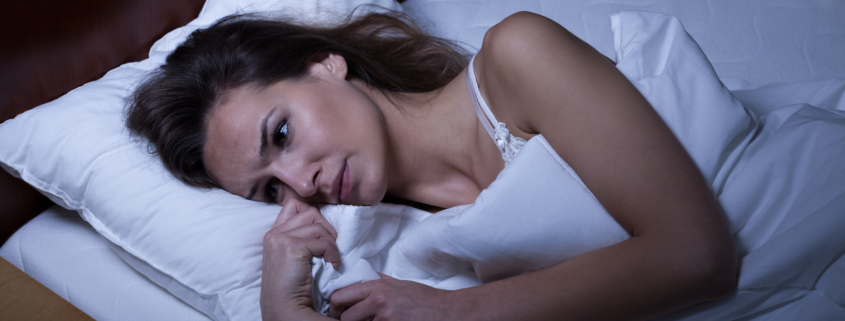12 Ways to Get a Better Night’s Sleep
Covid-19 Support Series #2
I hope you are well and safe during this Covid-19 pandemic. It’s a scary time. We can’t always control the things that happen around us or to us, but we can control how we react to them. How we manage our sleep impacts our physical, emotional, mental, and spiritual well-being and our relationships.
Today I’m going to share information about sleep hygiene.
Insomnia contributes to physical disease, a compromised immune system, accidents and mental illness. It also damages our relationships because we have less emotional resiliency.
Stress and anxiety can disrupt sleep. It may be harder to get to sleep, or more difficult to sleep through the night.
Please answer these questions:
1. When you wake up during the night, can you get back to sleep within 10 minutes?
2. Do you wake up in the morning feeling refreshed?
If your answer is “no”, do as many of these activities as you can.
1. Aim for 8 hours of sleep every night. Maintain your schedule on weekends. When we don’t get consistent sleep, it’s like being jet-lagged. Those who sleep less than six hours are especially susceptible to infections. Many people who don’t think that they need 8 hours of sleep are success-oriented individuals who are in denial about the need for enough sleep. Inadequate sleep lowers your immune system, compromises your thinking ability, and decreases your ability to cope emotionally.
2. Be mindful. Observe your thinking, emotions and behavior without judgment. Slow down. Accidents of all kinds occur more frequently when we don’t get enough sleep and we’re stressed. We’re prone to make decisions in split seconds instead of taking time to ponder wise choices. Have any of these events ever happened to you?
You ran into a piece of furniture and caused a deep bruise. You weren’t aware of your body in relation to the environment, and you didn’t see the piece of furniture.
You fell down the stairs when you were carrying too many boxes because you wanted to leave the house quickly.
You crashed your car.
I admit it. I’ve done them. During a time of crisis, we need to prevent as many unnecessary injuries as possible.
3. Examine your most important values. Take self-care seriously. One study indicates that most airplane crashes involve sleep deprivation. Even if you are not a pilot or a person in a high-risk profession, you can’t afford to dismiss the value of good self-care. Your choices not only impact you; they affect everyone around you. Remember what the flight attendants tell us: in the event of an emergency, put the oxygen mask on yourself first. If you don’t care for yourself well, you won’t be able to care well for others.
4. Go to sleep at the same time every night and wake up at the same time every morning. Even on weekends. The more you wake up at the same time, the more your brain unconsciously tries to help you go to sleep at the desired time.
5. Design a wind-down routine.
- Update your “to do list” at least two hours before you go to bed. This allows your mind to stop ruminating about what you have to do the next day.
- Get in bed a ½ hour before you want to be asleep. It’s normal to need ½ hour to fall asleep. Do self-soothing practices.
- Listen to my guided meditation to unwind: “A Journey into Wholeness.” Click here for the MP3. Click here for the CD.
- Listen to The Ultimate Brain meditation with stereo headphones. These are soothing engineered theta wave sound patterns that move you into a state of very deep relaxation. I use it daily. It’s free on YouTube. Search for Tom Kenyon The Ultimate Brain video booster cz 720p 2212017
- Listen to the meditation apps available for your smartphone.
- Read a book, but only if it’s soothing and doesn’t stimulate your mind.
- Pray.
- Journal. This is a good way to neutralize thoughts and emotions so you stop the monkey mind-chatter.
- Watch a calming pleasurable movie. No dramas, no violence, no politics.
- Take a hot bath. Hot water followed by a cooling down process helps you sleep.
- Adjust the temperature in your room to a cooler temperature.
- 6. Create a sleep-friendly environment.
- Make your bedroom as dark as possible. Buy room-darkening curtains if necessary.
- Remove all sound devices unless you need white noise to sleep.
Turn off the TV. Better yet, remove the TV from your bedroom. - Use a white noise machine if you need noise to help you sleep.
- Remove all electronic devices from your bedroom whenever possible.
- Turn off all WIFI at night. The electrical current impacts your body and brain even if you don’t realize it.
- Wear earplugs if you are sensitive to noise. I like these comfortable earplugs: Mack’s pillow soft silicone putty, available on Amazon or Walmart. Personally, I don’t like any other earplugs.
- Don’t use your computer or smartphone one hour before bed. Get an app that turns off the blue light.
7. Consume a healthy diet.
Do not drink alcohol in the evening. Alcohol will help you become sleepy, but your blood sugar will drop while you sleep and then you will wake up in the middle of the night. Abstain from recreational drugs which weaken your immune system. If you must drink alcohol, limit it to one a day for women and two a day for men. Drink earlier in the day. If you have trouble with alcohol or drugs, seek counseling.
Drink plenty of pure water. The rule of thumb is to drink half our weight in number of ounces per day. For example, if you weigh 120 pounds, you would drink 60 ounces of water each day. Dehydration can interrupt sleep and cause muscle cramps. You might need extra magnesium to eliminate muscle cramps.
Nix the sugar and simple carbohydrates (white bread, white rice, white pasta). These decrease your immune system and dysregulate sleep.
Eat anti-inflammatory foods: fruits, vegetables, lean protein, nuts, seeds and healthy fats.
Eat superfoods: Spinach, kale, red onions, capers, apples (eat the peel), berries.
Plant your own garden so you don’t need to go to the grocery store.
Eat a healthy small snack before you go to sleep. Eat a combination of proteins and complex carbohydrates to stabilize your blood sugar throughout the night. Examples: 5-10 almonds and 8 dried cherries with no added sugar. If you are a diabetic, seek your physician’s recommendations about a snack before bed.
8. Don’t do any activities in your bedroom other than sleep and make love. Then your brain will unconsciously associate your bedroom with pleasure and sleep. Do all your other activities in another room.
9. Exercise for at least 30 minutes every day. If evening exercise makes you too alert to go to sleep on time, exercise earlier in the day.
Soak up the sunshine for 10 minutes a day. It stimulates vitamin D and boosts your immune system.
10. Reduce or eliminate caffeine. If you’re having trouble sleeping, don’t drink caffeine. Not even in the morning. One of my psychiatrist colleagues says that caffeine can stay in the body for 2 days. The caffeine in green tea impacts you, too. I realize that people vary in their sensitivity to caffeine, but if you have trouble sleeping, don’t ingest caffeine for 30 days and see what happens.
11. Resolve your relationship conflicts. When we don’t feel securely attached to our loved ones, we experience grief and loss. All our emotions have a physiological counterpart. In my experience, grief is felt in the lungs. To help prevent and heal pneumonia and other lung-related dis-eases, mend your relationships as soon as possible. If your loved ones won’t cooperate, learn how to repair the wounds yourself. Seek psychotherapy and spiritual counseling.
12. Meditate mid-day to reduce chronic anxiety or insomnia. When our sympathetic nervous system is continually in a state of hyper-arousal, it’s hard to calm down at night. We call this state “tired and wired.” Chronic anxiety is bad for our physical and emotional health.
Research says not to take naps during the day if you have insomnia. I recommend meditation to renew your energy when you are exhausted. Take 30 minutes somewhere between 12 noon-4:00pm to go into a deep state of relaxation to calm down and renew your energy. Don’t meditate later than 4:00pm or you may have too much energy, and that will interfere with your sleep.
Here are some resources for meditation.
Listen to my guided meditation: “A Journey into Wholeness.” Listen to a sample. Click here for the MP3. Click here for the CD.
I’ve been using “The Ultimate Brain” meditation every afternoon at about 3:00pm for the last 30 years. That’s how helpful it is. Soothing sounds help increase your theta brainwaves, a state of very deep relaxation. It can also help eliminate pain. It’s free on YouTube. Search for: “Tom Kenyon The Ultimate Brain video booster cz 720p 2212017”
If you are serious about getting a better night’s sleep, do this:
• Print this article. Place a checkmark by all the activities that you want to use. Choose two or three items and become successful with those first. Then add more until you master the whole list.
• Schedule these items on your calendar just like you would for any other important activity.
• Set reminder alarms to help you maintain the schedule.
• Post a chart of your daily actions where you will see it. Review your chart every morning or night. Check off the items you did.
• Ask someone to be your accountability partner and review your chart weekly.
• If you have trouble keeping your commitments to yourself, reach out to a counselor to help you resolve your resistance to change. If you don’t get the proper amount of high-quality sleep, your entire life will suffer.
Even if you don’t do all of these activities perfectly, recording your behavior will keep you focused on your goals so that you will be more successful.
We create new habits after repeating new behaviors for 60 days. Consistency is the key.
You can do this!
I love you. I bless you. I believe in you.
Warmly,
Benita A. Esposito, MA, LPC, LCMHC
Benita Esposito is a psychotherapist in Georgia and North Carolina USA with four decades of experience. 
If you would like to schedule a complimentary 10-minute phone chat to see if we are a good fit for counseling, please complete the Contact Form.
I offer “distance counseling” by Zoom videoconference. If you live in another state, you can receive life coaching and spiritual counseling.
Please comment on this article or leave a question. Please share it with your friends on social media.













